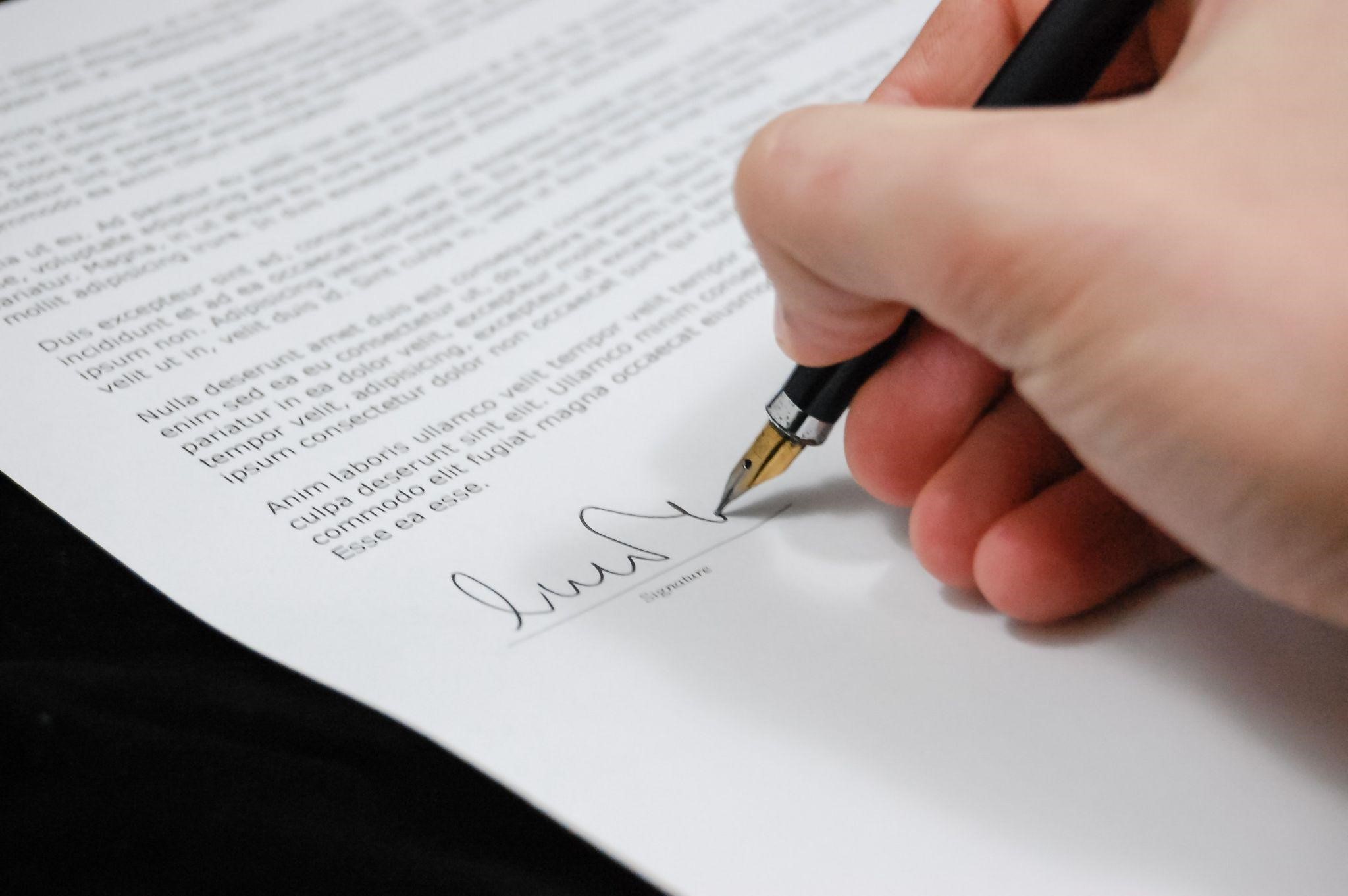Signing contracts can be confusing and overwhelming. It can also be time consuming if there’s a lot of reading involved. For many, reviewing and signing financial contracts is a stressful task. For that reason, most people resort to skimming the documents and signing the contracts without fully reviewing the finer details.

If this sounds familiar, you are in the right place. We’ll deliver some advice for reviewing contracts, policies, and bills so this task can go from stressful and boring to understandable and become much easier. We’ll help you understand which pages are the most important and answer questions like what is a homeowners declarations page?
Part of understanding your finances and budget is knowing how to properly review financial paperwork. Don’t get stuck with a financial obligation simply because you didn’t know how to read the contract, policy, or bill. Here are some of the basic things to remember when it comes to reviewing these important documents.
What to Look for When Signing a Financial Document
First things first: It’s extremely important to understand that once signed, a document becomes legally binding. While the type of document will vary, as will the parties involved, the first step is always for everyone involved to understand what’s at stake and that you are legally agreeing to the subject of the document.
If you have reached any additional agreements before the document was drawn up, you will want to make sure to have those amendments pointed out so that you can confirm they are in fact in the contract. Be sure to have any doubts or questions answered before signing. If anything needs to be added, make sure it is done before you sign.
Signing a Contract
From your marriage license to employment contracts, it’s inevitable that throughout life you will sign many things. Your unique signature is what you’ll use to legally verify your agreement to what you are signing. Most contracts will not become legally binding until a signature is on the document. Many businesses automate their contracting workflow.
A signature identifies the person who created it. It spells out their name in a unique way using letters and symbols. Each person’s signature will be unique to them, and it may change slightly over time. However, your signature should stay consistent, since it’s a way of identifying you.
It is best practice to read the entire document before you sign and make sure that you have a total understanding of what you’re agreeing to. All parties should be of sound mind when signing any legally binding contracts. Typically, you will sign on the last page of an agreement, and you’ll typically sign in a color ink that is different from the color of the document’s text.
Which pages of a contract are the most important?
Each contract will come with its own set of pages. For example, in an insurance contract, you will find the declarations page, which will list out the overview of your coverage. In an employment contract, there will be sections such as a benefits page and compensation page. In a rental property agreement, you will have the duration of your lease and payment due dates.
One could argue that all the pages in any document are important, but of course, there will be pages that are more important than others. Any page or element that requires a signature or initial is definitely worth reading in depth and noting. If there are certain areas where you are agreeing to a payment, these are also noteworthy.
It is in your best interest to read the document in its entirety. If the contract is long, ask to take it home and read it over the course of a few days. It’s extremely important that you understand what you’re agreeing to before signing.
When do I need a witness?
A witness is a third-party individual that can verify each signature on a document. Having a witness signature is another way to verify a contact’s validity. Each contract, state, and institution will have different requirements as to whether a witness or notary must be present to sign. Not all documents will require a witness to be present.
A witness must be a third party who is not related to any of the signees and who will not benefit in any way from the signing of the document. A notary is licensed by the state. They authenticate the identity of those who are signing the contract. A notary will not always be necessary. This depends on the state, institution, and type of document you are signing.
Signing a contract does not need to be an intimidating or overwhelming process. If you are prepared and know how to properly review documents, it can be easy and understandable. Following these tips and knowing what to look for will most definitely be to your benefit.

Sam Timmerman writes and researches for the insurance comparison site, Clearsurance.com. She is passionate about helping others understand contract signing to help them make the most informed decision.
